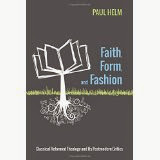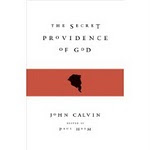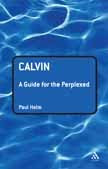In
‘Tolle Lege: A Brief Response to Paul Helm’ (Reformation 21) Scott Oliphint essays a rejoinder to the original article, 'What motivates Oliphint's proposals?' Here is my reply.
Thanks to Scott for his comments
and the kind references to myself. Maybe not a lot more can be gained by going
over the points of difference between us and any real or not so real
misunderstandings that there may be. Nevertheless, I’ll take the opportunity to clarify the main points as plainly as I can.
1. By ‘classical theism’ I mean (for
example) the following statement of the Westminster
Confession on God.
There is but one only, living, and true God,
who is infinite in being and perfection, a most pure spirit, invisible, without
body, parts, or passions; immutable, immense, eternal, incomprehensible,
almighty, most wise, most holy, most free, most absolute; working all things
according to the counsel of his own immutable and most righteous will, for his
own glory; most loving, gracious, merciful, long-suffering, abundant in
goodness and truth, forgiving iniquity, transgression, and sin; the rewarder of
them that diligently seek him; and withal, most just, and terrible in his
judgments, hating all sin, and who will by no means clear the guilty.
I don’t believe that the Divines held that
God ever behaved non-trinitarianly. Nevertheless, dogmatically, they discussed
the triune God under separate heads: De
Deo Uno, De Deo Trino: ‘Of God,
and of the Holy Trinity.’
2. What I said in John Calvin’s Ideas about changes in belief seems defensible. Apart
from the evidence of regeneration and new life a person has no reason to believe
that he is eternally loved by God, and has some reason to believe that he is
not; if he comes to have evidence that he is regenerated then he is provided
with good reason to believe that he is. If so, has God changed him? Of course,
he has regenerated him at t2, a state that he did not enjoy at t1. In doing so,
has God changed? No.
3. I’m still puzzled by Scott thinking that
accommodated language such as ‘God is angry with X’ means or implies ‘The Lord
is not angry but X is angry’. ‘The Lord is angry with X’ also entails that ‘The
Lord expresses anger at X’. Whether X is angry or not when God so expresses
anger is another matter. In fact I find it hard to imagine that if the
Creator-creature distinction is taken seriously, there can be anything other
than accommodation, which includes theophanic appearances. Vos’s remarks
reproduced by Scott are along this line. Think of how variously a human being
can express his thought: why deny to God a parallel variety? If I express my
doubt by shrugging my shoulders rather than by saying ‘I doubt that’, and speak
differently to adults and children, and to the French, why does that necessarily
convey falsehood or be in any other way off-centre?
4. Scott seems unnecessarily exercised by Tom
Morris’s argument about reduplicative expressions. The argument may be
generally correct, but it is inapplicable to the Incarnation as it is
historically understood. Morris says
Consider any conjunctive reduplicative proposition of
the form ‘x as A is N and x as B is not N’. If the subjects of both conjunct
are the same and the substituends of N are univocal across the conjunction,
then as long as (1) the reduplicative predicates being A of x and predicates
being B of x, and (2) being N is entailed by being A and not being N is
entailed by being B, then the reduplicative form of prediction accomplishes
nothing but muddying the waters, since in the end the contradiction stands of x
being characterized as N and not-N. (The Logic of God Incarnate 48-9,
Oliphint 200-1)
In the case of the God-man, our two-natured
Mediator, I don’t see any contradiction in saying that ‘The God-man in respect
of his human nature does not know what in respect of his divine nature he does
know.’
5. Finally, I re-emphasize the central
problem. Scott appears to argue that the Logos’s taking on human nature at a
point in history warrants us in saying that the second person of the Trinity
possessed in the OT at least some of such properties, 'covenant properties', as later he has in virtue
of being incarnate.
To begin with, such a suggestion seems
speculative. Hardly strong enough to hang a substantive theological point
on.
But in any case, in working out his claim Scott
is still faced with this problem – the covenantal properties which the eternal,
omniscient Logos takes on: are they
divine properties or human? I suppose not divine properties, because they are contingent,
and I think Scott means that the other two persons don’t possess them. The Incarnate Logos’s covenant properties (e.g. being ignorant of the future) are so in
virtue of his union with human nature. So if the Logos reveals such properties
in the OT, which Scott says are proleptic of the Incarnation, then it seems
that they also must be human, contingent, creaturely properties.
But are they? In any case we ought not to think that in the OT the Logos
took on anything that would compromise the omniscience of his divine person.
On the other hand, if the covenantal properties
are divine properties, then Father, Son and Holy Ghost each and together know
what the Incarnate Son does not know. (But then what happens to the unity of the Trinity?) Scott
does not show how taking on 'covenant properties' is possible, that is, how the
adoption of such properties amounts to a logically coherent possibility.
So as it stands it is a very weak and unclear claim
on which to develop a major dogmatic change, because the covenant properties
are not clearly either divine or human properties. There is no other alternative. And neither is satisfactory,
there are serious difficulties with each proposal. And if Scott says that what
motivates the proposal are alleged difficulties that he finds with the idea of
divine accommodation, in my view such a development is in any case unnecessary. Divine accommodation is of the essence of the Creator - creature relationship
So let us summarise this in the form of a
dilemma: Either the 'covenantal properties' identified
by Scott are creaturely or they are divine. If creaturely then they are
possessed by God contingently, and the Logos, being God, nevertheless has human properties. This impairs the divine unity. If the 'covenantal properties' are divine they are
necessary and God is both essentially omniscient and essentially ignorant, or
perhaps the incarnate Son alone is essentially omniscient (being true God) and
contingently ignorant (being true man). Are we improving things?
In view of these manifest difficulties it is
much more straightforward to retain the age-old notion of divine accommodation;
‘In the past God spoke to our forefathers through the prophets at many times
and in various ways, but in these last days he has spoken to us by his [incarnate]
Son’.
Still friends, Scott!








